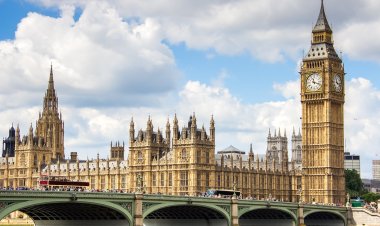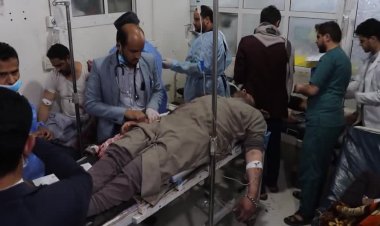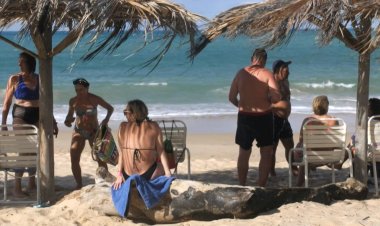Evo Morales supporters march to La Paz in protest

Thousands of supporters of Bolivian ex-president Evo Morales arrived in the capital La Paz after a four-day march of about 100 kilometers, protesting against economic hardship.
Camped out near the city's main square, the group of mostly Indigenous people -- said by the government to number about 2,300 and by organizers 5,000 -- are demanding the resignation of incumbent leader Luis Arce.
They had set out from the village of Patacamaya, south of La Paz, last Friday waving the national flag and the colorful Indigenous banner known as the Wiphala, holding up placards reading: "Arce, there is no fuel," or "Arce, the people are hungry."
Two people were arrested after the protest turned "violent," a police official said. Demonstrators have said they won't leave the city.
Last year, Morales supporters blocked roads in the center of the country for weeks. That came after prosecutors charged him with statutory rape over an alleged relationship he had with a 15-year-old while in office.
A warrant has been issued for his arrest.
Inflation in Bolivia was 9.9 percent in 2024, the highest in 16 years, according to official data.
The country has also been hit by shortages of fuel and foreign currency.
Interior Minister Eduardo del Castillo said three police officers were injured "in an ambush" during the latest protest march, and another two people were hurt when two tourist buses came under attack.
Morales led the country from 2006 to 2019 and was extremely popular until he tried to bypass the constitution to seek another term.
He was forced to resign amid deadly protests over alleged election fraud and fled the country for a time.
Morales says the charges of statutory rape, which he denies, were brought by the government of ally-turned-rival Arce to rule him out of politics.
In November, Bolivia's constitutional court barred Morales from seeking reelection this year, affirming that a president cannot serve more than two terms.















